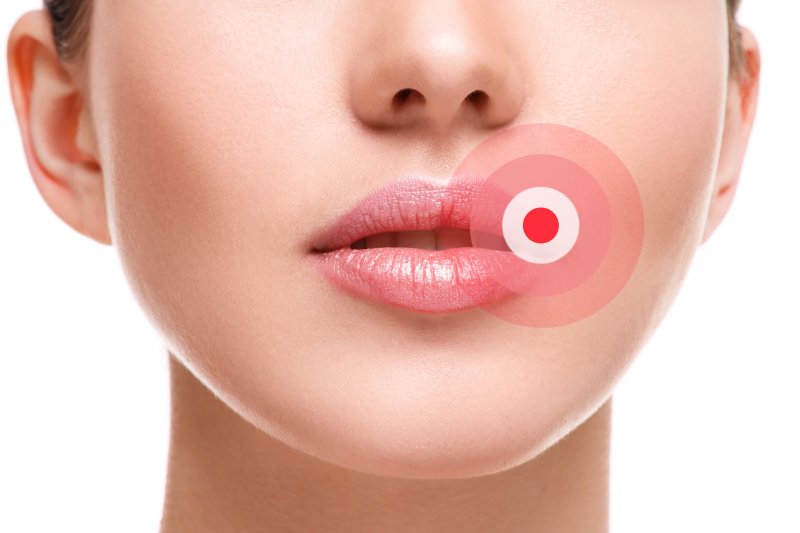
It’s hard to think of two words less fun than “mouth sore.” They’re painful, unsightly, and can make you concerned that you might be contagious. The two most common are cold sores and canker sores, and they’re easy to mix up. If you’re wondering which one you might be dealing with, here’s a quick guide to help you tell them apart.
What’s a Canker Sore?
These are small sores located inside the mouth. They’re usually found on the gums, inside your cheeks, or on your tongue. They look yellow or white and are surrounded by a red border.
Canker sores aren’t contagious. It’s not completely clear what causes them, but they may appear due to injury, stress, or a reaction to some foods. They’ve also been tied to nutrient deficiencies, namely those of vitamin B-12, iron, and folate. They usually heal on their own after anywhere from a few days to a few weeks.
What’s a Cold Sore?
These are fluid-filled lumps caused by certain strains of the herpes simplex virus, aka HSV. It is typically associated with HSV-1 but can also be caused by HSV-2, i.e., the virus that causes genital herpes.
HSV is very contagious and is most likely to spread when cold sores are present. If you’ve had HSV for a while, a cold sore flare-up can come from fatigue, sunlight exposure, a cold, or hormonal changes.
Cold Sore vs. Canker Sore: Which is Which?
While the two can feel similar, cold and canker sores can be told apart in the following ways:
- Canker sores are always on the inside of the mouth. Cold sores are usually on the outside.
- Cold sores can only be present if you have HSV.
- Cold sores are usually filled with fluid and scab over. Canker sores just gradually get smaller and disappear.
Both canker sores and cold sores go away within a few weeks. You can use some antivirals for cold sores, but for the most part, the treatment for either of them is over-the-counter creams that relieve pain. If a mouth sore persists for more than a few weeks, you should contact your dentist to screen you for more serious diseases. That said, they’re usually just mild annoyances that will work themselves out.
About the Author
Dr. Nelson Y. Howard has over 34 years of experience caring for patients, and in that time has learned just about everything there is to know about general dentistry. Whether you need emergency care, cosmetic procedures, or you just a check-up, he is prepared to help you. Dr. Howard is a graduate of the UCLA School of Dentistry and was the first dentist in North San Diego County to be made an Accredited Member of the American Academy of Cosmetic Dentistry (AACD). If you have any questions about preventing oral disease, he can be reached at his website or by phone at (858) 451-0550.
